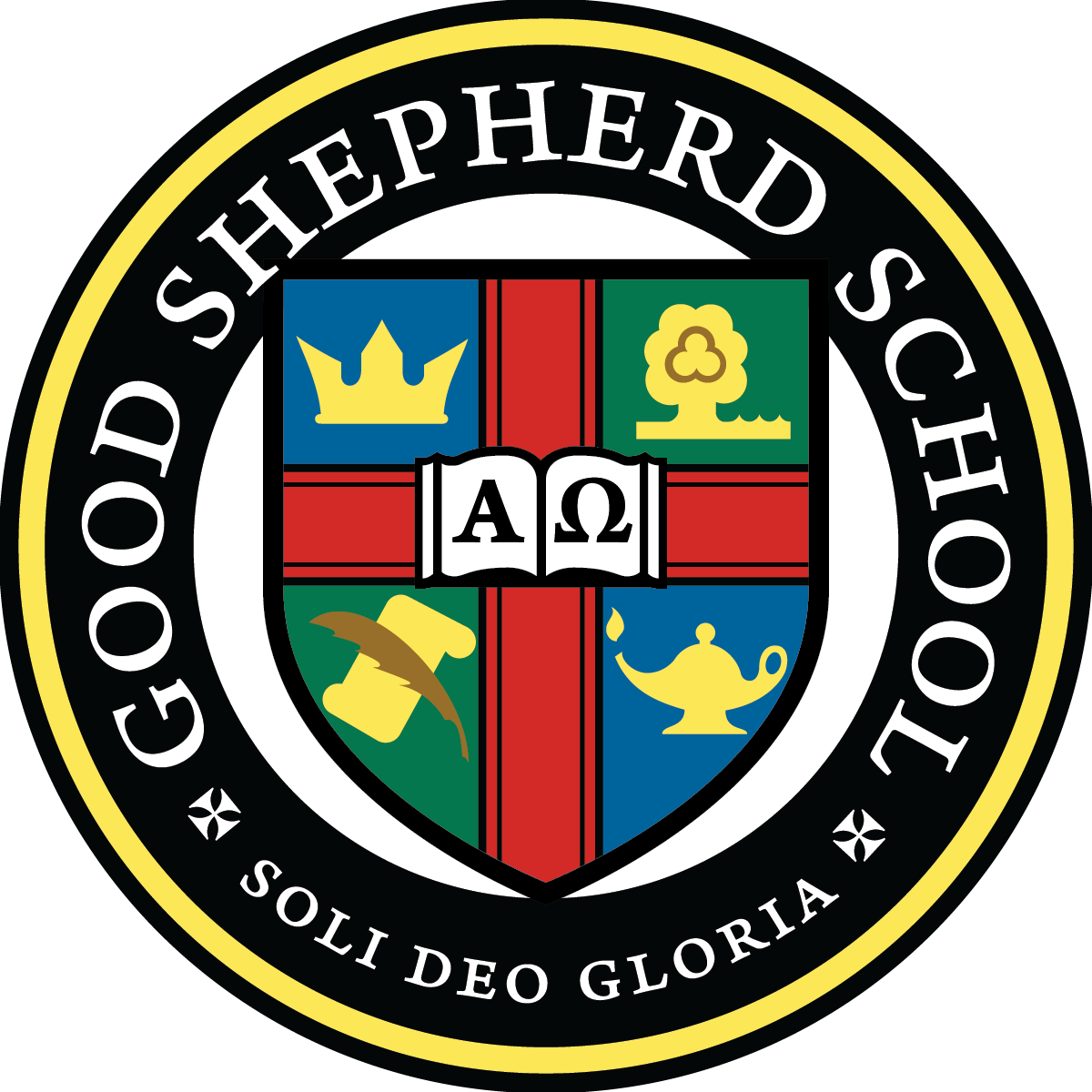“For the sole purpose of education is simply this: to teach men how to learn for themselves; and whatever instruction fails to do this is effort spent in vain.”

What is Classical Education?
In taking on the challenge of establishing a sound educational system that is truly Christian, more is involved than having Bible readings and lessons, offering prayers, and maintaining a disciplined moral environment. The Christian school must first teach “Christianly”—that is, its curriculum must reflect the Divine perspective in each subject as it is rooted in Holy Scripture. There are no neutral subject areas. Secondly, the Christian school must teach its pupils to think “Christianly.”
In the western world, our way of life, our theological and intellectual history, our laws and social customs, have all been handed down to us. Our culture has grown from the heritage of the ancient Hebrews, Greeks, and Romans. As the Gospel spread throughout the ancient classical world, the early Christians developed a teaching method around what were called the ‘Seven Liberal Arts.’ This method grew and developed down into the Middle Ages and had remarkable success. The first three of these Seven Liberal Arts were called the Trivium and were the means for giving students the tools of learning.
Our adoption of the Trivium as a method of instruction was essential in the formation of our school upon a classical model. The Trivium has three parts. The first, grammar, concerns the elements of any given subject. Logic is the second, and deals with the reasoning which ties all the various elements together. Rhetoric is then used to teach the students how to express what they have learned in a polished and effective way. At Good Shepherd, we apply these three categories in every discipline, and every discipline can be divided into these categories.
Each child also has an innate affinity for the different stages of learning of the Trivium. We ensure that students of different ages learn according to those innate abilities. From the chanting of math and grammar of the elementary students, to the logic class with debate and discussion in junior high, to inventive rhetoric and study of literature at the senior high school level, the various stages of the Trivium are thoughtfully lined up with the abilities and desires of the students.
The Trivium
In the grammar stage, young students are taught the basic set of knowledge for each subject and the basic skills for mastering that knowledge.
The study of Latin is begun in earnest in the grammar stage. By studying Latin, the student learns the mechanics of all language. Eighty percent of all English words, especially in the sciences and technology, are rooted in Latin, making Latin invaluable to any student in building a powerful vocabulary. It is a proven fact that students with a Latin background score higher on college entrance exams. As students become skillful with the learning tool of grammar, they gain the ability to navigate through the mass of information they will face.
In the logic stage, the curriculum takes advantage of the argumentative ability of the older pupil, channeling his natural inclination toward sound reasoning and careful thinking.
The student learns to structure sound arguments, and to recognize the fallacies of argument that typically arise in advertising, politics, or civil and cultural disputes. Students so trained are not easily duped by smooth talkers, crafty orators, or misleading statistics.
The rhetoric stage brings to fruition the art of learning.
The student begins to integrate a whole sense of life, of the world, and of his place in it. At the same time, he refines his ability to express himself correctly, persuasively, and eloquently. As a Christian school, Good Shepherd is committed to the belief that all knowledge is and must be tethered to Christ, “in whom are hidden all the treasures of wisdom and knowledge” (Col. 2:3).

A Good Shepherd Education
Good Shepherd School has for 40 years remained committed to an educational vision that is both Christian and classical. This model for education not only shaped the ideals embodied in our nation’s founding, but nurtured our nation’s growth to greatness.
The four pillars of education—oratio, studium, labor, recreatio—set the framework in which Good Shepherd’s teachers educate. We make great effort to give such a Christian and Classical education to every child we receive, even those who have been schooled poorly, or those who suffer from moderate learning disabilities. To such students, who may not be ready for our full program, we offer an individualized tutoring class designed to help them in their particular area of difficulty until they can function well in the regular classroom setting.
For 40 years, Good Shepherd’s seasoned teachers have worked to help their students master the challenge of true learning. While Good Shepherd graduates have been accepted by many prestigious colleges and universities, the real measure of their education from Good Shepherd is their own notable collegiate achievements and post-graduate pursuits. We have found that when family, church, and school reinforce, support, and agree with each other in the Christian and Classical training of children, these young people, without fail, become outstanding members of their communities, to the glory of God.
Education at Good Shepherd School begins in preschool with the three R’s—Reading, [w]Riting, and [a]Rithmetic—and strives to equip its graduates with the Tools of Learning, seasoned by three more R’s—Respect, Responsibility, and Resourcefulness. We aim to see our students use this educational foundation to “cast down arguments and every high thing that exalts itself against the knowledge of God, bringing every thought into captivity to the obedience of Christ” (2 Cor. 10:5).
The Four Pillars of Education
The truth that God does not change implies that, in a world under God, there are some things that also ought not to change. The four pillars of a Good Shepherd education—oratio, studium, labor, recreatio—reflect this abiding truth.
Oratio
Oratio is the Latin word for prayer. Each school day begins and ends with the Daily Offices of prayer. These offices, called Matins and Evensong, are sung Anglican worship services that have been prayed for centuries. This daily routine nurtures orderliness, respect, and a continual awareness of God’s presence in the culture of the school. It reinforces traditional Christian virtues so vital to our school families and the many church traditions represented at Good Shepherd. Students also gain confidence in their voices, and learn to love many ancient hymns, psalms, and canticles of the Church. The “fear of the lord is the beginning of wisdom, and the knowledge of the Holy One is insight” (Prov. 9:10)
Studium
The English word study derives from studium. But this also carries the ideas of zeal and eager pursuit. Learning only takes place when students are eagerly and actively engaged. Mere exposure to information is never the same thing as learning. At Good Shepherd School we believe one of the most important purposes of education is learning how to learn. Because of this, the Good Shepherd curriculum follows the Medieval Trivium—a carefully developed plan that is not as focused upon the acquisition of subject matter as upon the cultivation of the tools of learning that will enable students to educate themselves effectively through the rest of life.
Labor
The third pillar is labor, the Latin word for work, struggle, and effort. Students learn that their studies are their primary work, a labor done for the glory of God. They begin to understand that education has a much higher goal than providing a pathway to a high paying job. Through effort and struggle talents are disciplined and skills are acquired. These, when used to serve God and man, yield the deep satisfaction of work well done. Additional venues for labor include: gardening in our community garden, debating in cross-examination tournaments through the National Forensic League, engaging in service projects, or simply doing work on campus for the school.
Recreatio
The rhythm of work and rest in God’s world suggests the importance of the fourth pillar, recreatio, Latin for restoration or refreshment. Beyond enjoying the refreshing beauty of God’s created works through field trips and nature study, students themselves experience and display beauty through choral singing, athletics, drama, and dance. Good Shepherd School hosts, usually in conjunction with the celebrations of Christmastide and Eastertide, English contra dancing—a type of community celebration enjoyed by our nation’s founding fathers.







